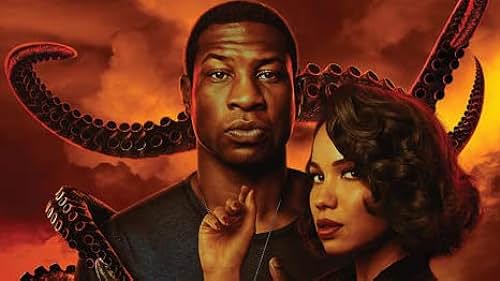Introduction:
“Lovecraft Country,” the critically acclaimed television series developed by Misha Green, based on the novel by Matt Ruff, is a tour de force that transcends traditional genres. Blending elements of horror, fantasy, science fiction, and historical drama, the show weaves a captivating narrative set against the backdrop of 1950s America. In this comprehensive review, we delve into the intricate layers of “Lovecraft Country,” exploring its thematic richness, character complexity, historical significance, and the groundbreaking storytelling that sets it apart in the television landscape.
1. Intersectionality and Genre Diversity:
“Lovecraft Country” stands out for its commitment to intersectionality, seamlessly blending genres to create a narrative that defies categorization. The series combines Lovecraftian horror with historical drama, supernatural elements, and social commentary, offering viewers a multifaceted and unique storytelling experience.
2. Historical Context and Social Commentary:
Set in the racially segregated United States of the 1950s, “Lovecraft Country” uses its historical setting as a canvas for powerful social commentary. The series fearlessly confronts issues of racism, systemic oppression, and the struggles faced by African Americans during a tumultuous period in American history, drawing parallels to contemporary sociopolitical challenges.
3. Character Complexity and Emotional Depth:
The characters in “Lovecraft Country” are intricately developed, each grappling with personal demons, family legacies, and the supernatural horrors they encounter. From Atticus Freeman (Jonathan Majors) to Letitia Lewis (Jurnee Smollett), the ensemble cast delivers performances that breathe life into their complex roles, fostering a deep emotional connection with the audience.
4. Lovecraftian Horror and Cosmic Dread:
The series pays homage to the works of H.P. Lovecraft, infusing the narrative with cosmic horror and otherworldly entities. However, “Lovecraft Country” subverts Lovecraft’s racist legacy by placing African American characters at the forefront of the story, challenging and reclaiming the genre for a more inclusive audience.
5. Empowering Female Characters:
“Lovecraft Country” features strong and empowering female characters who play pivotal roles in the narrative. Letitia, Hippolyta (Aunjanue Ellis), and Ruby Baptiste (Wunmi Mosaku) break traditional molds, showcasing resilience, intelligence, and agency in a time when societal expectations were often restrictive for women.
6. Epic Storytelling and Pacing:
The series excels in its storytelling, seamlessly balancing episodic narratives with an overarching plot. The pacing is masterfully crafted, keeping viewers on the edge of their seats with a perfect blend of suspense, horror, and character-driven drama. Each episode unfolds like a chapter in an epic novel, contributing to the overall narrative tapestry.
7. Visual Excellence and Cinematic Aesthetics:
“Lovecraft Country” is a visual spectacle, with each episode crafted with meticulous attention to detail. The cinematography, production design, and visual effects contribute to the series’ immersive atmosphere, transporting viewers from the mundane to the fantastical with a level of cinematic excellence rarely seen on the small screen.
8. Exploration of Identity and Legacy:
Identity and legacy are central themes in “Lovecraft Country.” Characters grapple with their heritage, ancestral connections, and the impact of family history on their present lives. The series explores the complexities of identity, highlighting the importance of understanding one’s roots in the face of adversity.
9. Genre-Bending Soundtrack:
The show’s soundtrack is a genre-bending delight, featuring a mix of period-appropriate music, contemporary tracks, and compositions that enhance the emotional impact of key scenes. The carefully curated soundtrack adds another layer to the series, creating a sonic landscape that complements the visual storytelling.
10. Relevance and Cultural Impact:
“Lovecraft Country” has left an indelible mark on popular culture, sparking conversations about representation, genre conventions, and the intersection of horror and social commentary. The series has not only resonated with fans but has also opened doors for more diverse and inclusive storytelling in the television industry.
Conclusion:
“Lovecraft Country” stands as a groundbreaking and genre-defying masterpiece that transcends the boundaries of traditional television. With its rich thematic exploration, diverse characters, historical relevance, and visually stunning presentation, the series has elevated the medium, setting a new standard for ambitious storytelling. “Lovecraft Country” is not merely a TV show; it’s a cultural phenomenon that challenges preconceptions, pushes boundaries, and invites audiences on a visceral journey through the intersection of horror, history, and humanity. As the television landscape continues to evolve, “Lovecraft Country” stands as a testament to the transformative power of storytelling and its ability to ignite conversations that resonate far beyond the screen.
